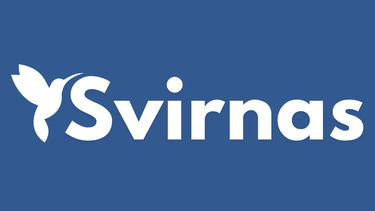H1 - H15 Hygiene skills training
H1
Specific Programme for Compulsory Hygiene Skills Training
(007, 017)
1. Legislation regulating the general health safety requirements for the organisation of children's education, children's social care (the content of the topic shall be adapted to the target contingent of trainees according to the specifics of the activities they perform and the peculiarities of their workplace).
2. Requirements for the layout of the area, premises, lighting, microclimate, ventilation, noise, water supply and sewage disposal.
3. Maintenance of the site, premises, equipment and inventory.
4. Hygiene of daily routines and catering arrangements.
5. Hygiene of the educational process.
6. Child health care (prevention of communicable diseases, vaccinations).
H2
Specific Programme for Compulsory Hygiene Skills Training
(008)
1. Legislation on general health safety requirements for the organisation of social care for adults.
2. Requirements for the layout of the area, premises, lighting, microclimate, noise, ventilation, water supply.
3. Maintenance of the grounds, premises, equipment and inventory.
4. Hygiene in catering organisation.
5. Personal hygiene of service users, provision of bed linen, towels, clothes.
H3
Specific Programme for Compulsory Hygiene Skills Training
(009)
1. Legislation governing public health safety requirements for beauty services.
2. Public health safety requirements for the premises, equipment and maintenance of the premises, equipment and supplies used.
3. Requirements for cosmetic products, paints, jewellery used in the provision of beauty services.
4. Information on the risks associated with the provision of services, possible complications, follow-up care of damaged/injury areas of the body, cases where the service/procedure cannot be provided to the service user.
5. Requirements for the care, cleaning, disinfection, sterilisation of instruments (tools).
6. Requirements for persons providing beauty services, their personal protective equipment.
7. Prevention of infectious, skin and allergic diseases.
H4
Specific Programme for Compulsory Hygiene Skills Training
(010)
1. Legislation governing public health safety requirements for solarium services.
2. Public health safety requirements for solarium premises, equipment and maintenance.
3. Exposure to ultraviolet radiation, skin types and skin reaction to ultraviolet radiation, rules for sunbathing, contraindications, consequences of immoderate sunbathing. Malignant skin diseases and their prevention.
4. Prevention of infectious diseases.
H5
Specific Programme for Compulsory Hygiene Skills Training
(011)
1. Legislation governing general public health safety requirements for physical education and sport, recreation and other recreational services.
2. Requirements for facilities for the provision of physical education and sport, wellness treatments and recreational services. Requirements for swimming pools and saunas.
3. Maintenance, cleaning, disinfection of facilities, equipment and equipment for sport and wellness.
4. Preparation and quality requirements for drinking water, water used for showers, baths, swimming pools.
5. Prevention of infectious diseases (skin diseases, intestinal diseases, legionellosis).
6. Requirements for persons providing sports, fitness and other recreational services.
H6
Specific Programme for Compulsory Hygiene Skills Training
(013)
1. Legislation governing public health safety requirements for accommodation services.
2. Public health safety requirements for the area, premises, furnishings, equipment.
3. Maintenance of premises, installations, inventory.
4. Water supply, drinking water control, prevention of legionellosis.
5. Requirements for water bodies, swimming pools, baths.
6. Waste management, pest control.
7. Hygiene requirements for service workers.
8. Prevention of infectious diseases (the content of the topic shall be adapted to the target contingent of trainees according to the specific nature of their activities and the peculiarities of the workplace).
H7
Specific Programme for Compulsory Hygiene Skills Training
(016) (the content of the subject is adapted to the target contingent of trainees according to the specific nature of their activities and the particularities of the workplace)
1. Legislation on food hygiene and general public health safety requirements for passenger transport.
2. Requirements for microclimate, ventilation, water, waste water management, equipment, tools, inventory and their maintenance (cleaning, disinfection, disinsection).
3. Good hygiene practice requirements for cooking and washing dishes, receiving, dispensing and storing finished products.
4. Requirements for the collection and handling of waste.
5. Personal hygiene of workers.
6. Prevention of communicable diseases.
H8
Specific Programme for Compulsory Hygiene Skills Training
(018)
1. Legislation governing public health safety requirements for territorial police custody and detention facilities.
2. Public health safety requirements for the construction and maintenance of detention facilities and places of deprivation of liberty in territorial police establishments.
3. Requirements for the organisation of catering and personal hygiene of persons detained in territorial police detention facilities and places of deprivation of liberty.
4. Basics of prevention of occupational exposure to blood.
5. Prevention of sexually transmitted infections, human immunodeficiency virus (HIV) transmission, acquired immunodeficiency syndrome (AIDS), hepatitis B and C.
H9
Specific Programme for Compulsory Hygiene Skills Training
(019)
1. Legislation governing general public health safety requirements for drinking water supply. Protection zones for water supply sites and restrictions on economic activities therein.
2. Safety and quality requirements for drinking water.
3. Safety and quality requirements for natural mineral water and spring water.
4. Prevention of infectious diseases transmitted through drinking water, legionellosis.
5. Maintenance, cleaning, disinfection of buildings and installations for the extraction, preparation, supply, storage, packaging of drinking water.
6. Risk assessment of drinking water.
H10
Specific Programme for Compulsory Hygiene Skills Training
(020) (the content of the subject is adapted to the target contingent of trainees according to the specific nature of their activities and the particularities of the workplace)
1. Principles of food safety and legislation governing food handling, placing on the market and requirements for food contact articles and materials.
2. Hygiene requirements for food business operators (personal hygiene, food hygiene, prevention of cross-contamination, maintenance of premises, equipment, transport, control of arthropods and rodents, removal of unsafe food from the market, waste management).
3. General requirements for the labelling of foodstuffs. Provision of information on food allergens and its importance.
4. Self-monitoring by food business operators using procedures based on the principles of Hazard Analysis and Critical Control Point (HACCP).
5. Foodborne communicable diseases and their prevention.
6. The importance of reducing fats, sugars and salt in food.
H11
Specific Programme for Compulsory Hygiene Skills Training
(021)
1. Maintenance of the environment (premises, objects, equipment), cleaning techniques and technologies (cleaning, use of cleaning agents, disinfectants, other biocides, ventilation, pest control).
2. Prevention of infectious diseases, vaccination (the content of the topic is adapted to the target contingent of trainees according to the specifics of their activities and the peculiarities of their workplaces).
3. Preventive measures for allergic, occupational and other diseases, the importance of using (wearing) personal protective equipment for hand, respiratory and eye protection.
H12
Specific programme for compulsory hygiene skills training
(022)
1. Legislation governing public health safety requirements for laundry services.
2. General requirements for the installation and maintenance of laundries. Maintenance of premises, equipment, inventory.
3. Specific requirements for laundries (the content of the topic shall be adapted to the target contingent of trainees according to the specific nature of their activities and the particularities of the workplace):
3.1. Special requirements for laundries not handling healthcare laundry;
3.2. Specific requirements for laundries that do launder laundry for healthcare facilities;
3.3. Requirements for self-service laundries.
4. Public health safety requirements for the technological process (reception of dirty laundry, storage of clean and dirty laundry, washing, drying, ironing, packaging, dispensing clean laundry).
5. Washing methods and technologies, requirements for washing and disinfecting agents and their potential health effects.
6. Public health safety requirements for the collection, sorting, storage and transport of laundry to the laundry.
7. Requirements for laundry staff. Personal protective equipment and its role in the prevention of occupational and other diseases.
H13
Specific programme for compulsory hygiene skills training
(023)
1. Groups of medical waste generated in health care facilities and their characteristics.
2. Essential requirements for the segregation at source, collection, packaging, labelling, pre-treatment and temporary storage of medical waste generated in healthcare facilities.
3. Prevention of infections transmitted through blood and other body fluids (hepatitis B, hepatitis C, HIV, etc.), prevention of occupational exposure (immunoprophylaxis, measures to be taken in the event of exposure incidents).
4. Collective and personal protective equipment, development of safe working skills.
5. Prevention of HIV transmission.
H14
Specific programme for compulsory hygiene skills training
(024)
1. Hygienic requirements for the ventilation, lighting, plumbing and drainage, cleaning and disinfection of funeral premises.
2. Prevention of infections transmitted through blood, intestines, skin and respiratory tract.
3. Personal hygiene and safe working skills, personal protective equipment.
4. Principles of medical waste management, collection, segregation, packaging, labelling, storage, elimination of harmful substances.
H15
Specific programme for compulsory hygiene skills training (the content of the topic is adapted to the target contingent of trainees according to the types of toxic substances and the characteristics of their activities and workplaces)
1. Groups of poisonous substances, their properties, effects, depending on their type, physical and chemical properties, routes of entry, accumulation, excretion from the body. General knowledge of the toxicity of toxic substances, their effects on human health and the environment.
2. Signs of acute and chronic poisoning by toxic substances. Occupational risk factors, their impact on human health, organisation of medical assistance. The role of preventive health checks in the prevention of chronic poisoning and occupational diseases.
3. Development of skills for safe work with toxic substances. Engineering, technical and technological measures to protect against the risk of poisoning by toxic substances and their release into the environment.


Contacts
Telephone number: +37065372182
E-mail: info@svirnas.lt
© 2024. MB Svirnas
Requisites
Company code 306738002
Registered office address: Sodų g. 8-60, Mažeikiai
Licence No VVL-0730
Licence No VVL-0731
